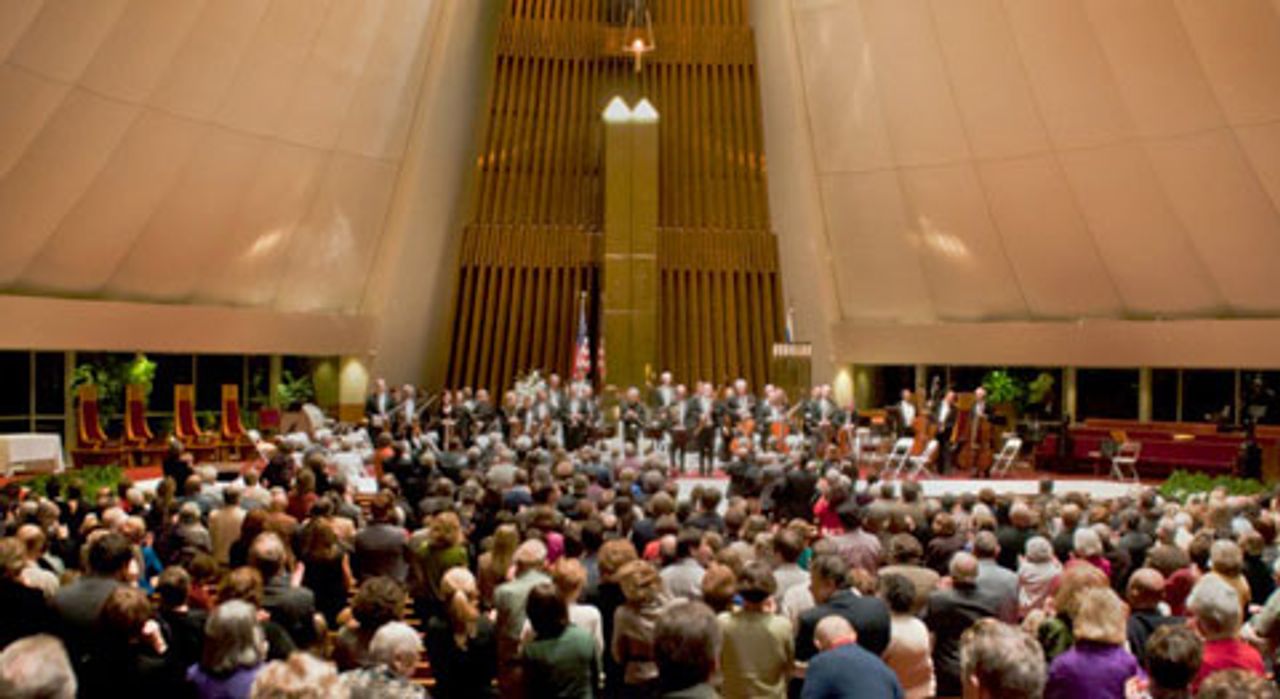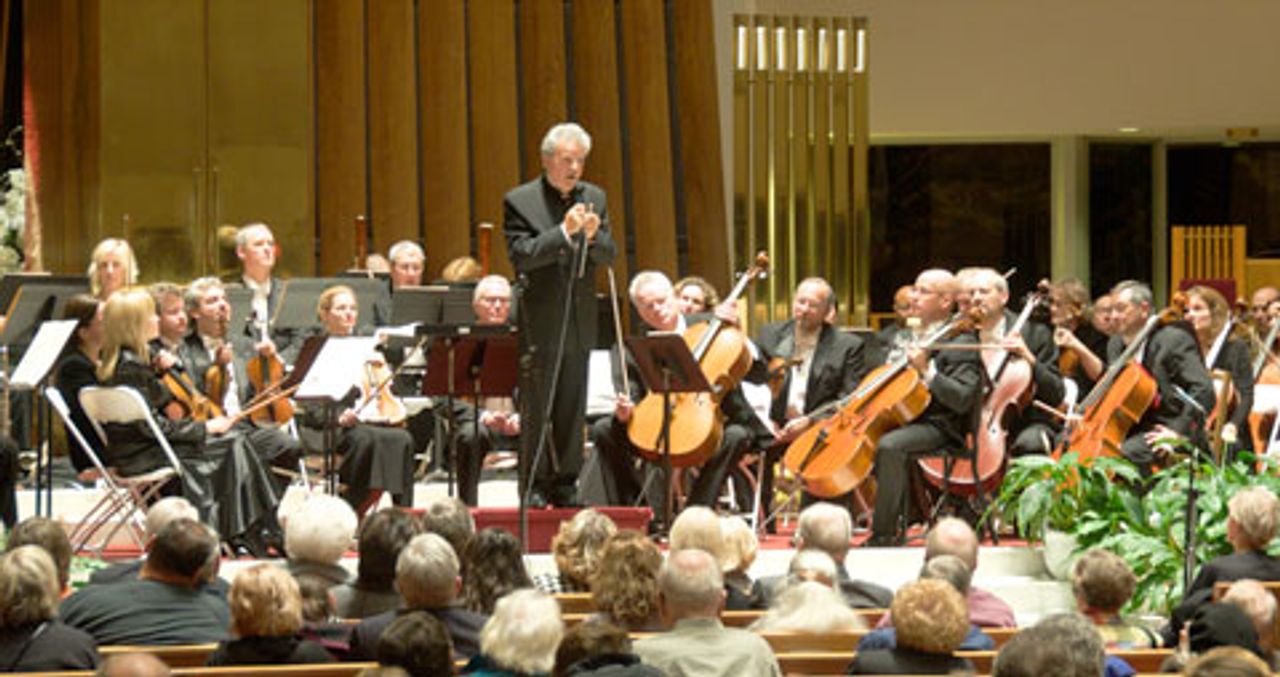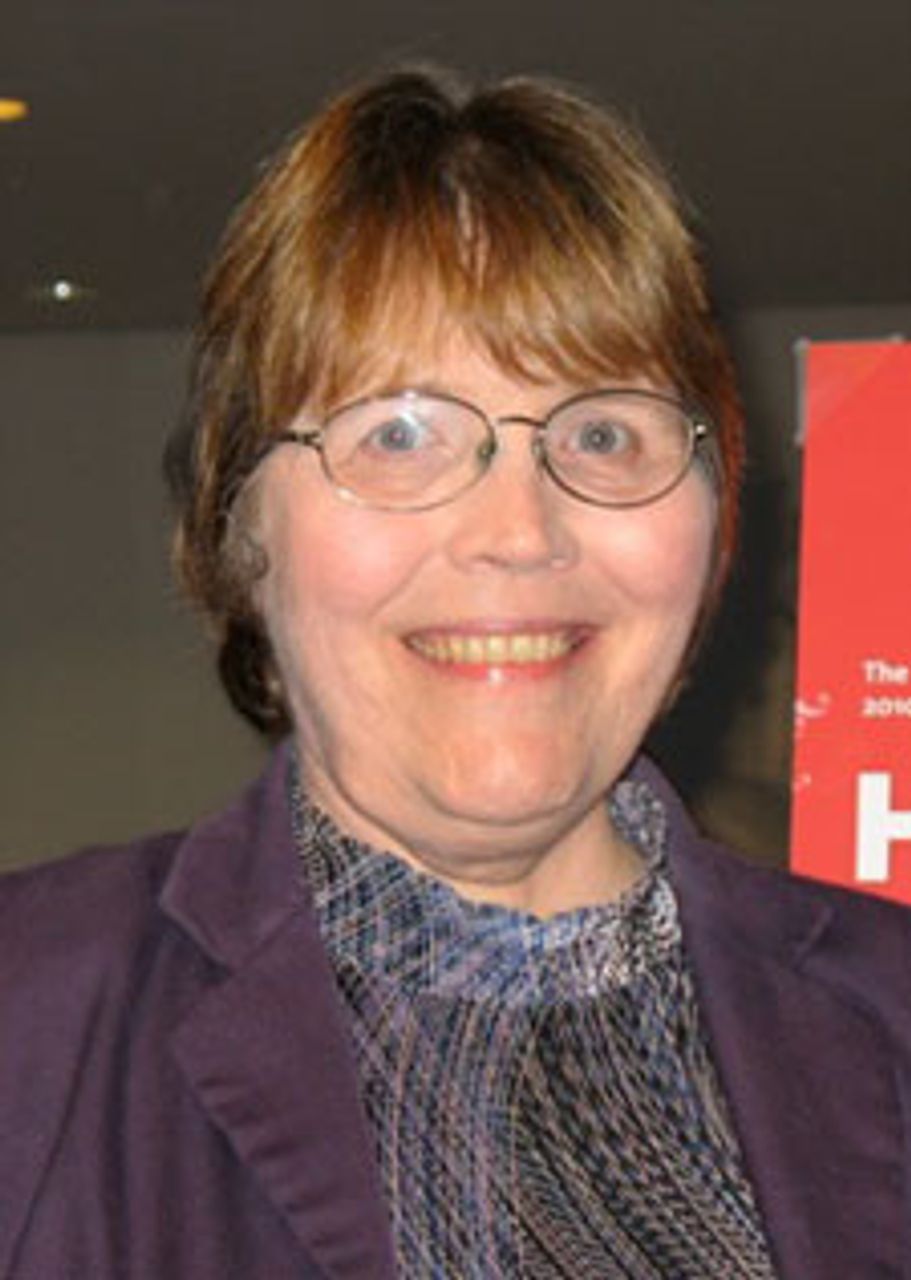Detroit Symphony musicians, on strike since October 4, played before an enthusiastic audience November 21 at Temple Beth El in Bloomfield Hills. It was the fourth support concert held by the DSO musicians in the course of their walkout, now in its eighth week.
 The performance at Beth El Temple [Photo: Hart Hollman]
The performance at Beth El Temple [Photo: Hart Hollman]Israeli-born guest conductor Uriel Segal, currently with the Jacobs School of Music, Indiana University, led the orchestra in selections from Mozart and Tchaikovsky. Among his many accomplishments, Segal served as Music Director of the renowned Chautauqua Festival in New York state and is Laureate Conductor of Century Orchestra in Osaka, Japan, an orchestra he founded and led for 8 years.
Soloists Donald Baker, oboe, Karl Pituch, French Horn, Theodore Oien, clarinet, and Robert Williams, bassoon, gave a masterful rendition of Mozart’s Sinfonia Concertante for Oboe, Clarinet, Bassoon, Horn and Orchestra in E Flat Major. The second half of the program featured an inspired performance of Tchaikovsky’s Symphony No 5.
Following the concert Segal addressed the audience. The veteran conductor said he felt honored to be able to lead an orchestra of such outstanding quality and expressed his support for the DSO musicians in their ongoing struggle.
 Guest conductor Uriel Segal
Guest conductor Uriel SegalDSO musicians are holding three additional support concerts next month; December 3 in Bloomfield Hills, December 12 in Warren and December 14 in Rochester Hills. Maestro Kypros Markou, Director of Orchestral Studies at Wayne State University in Detroit, will conduct all three events. As with all previous concerts, players, guest artists and stagehands are donating their services.
The conflict in Detroit involves demands for massive concessions that would effectively destroy the DSO as a leading orchestra. Management wants to impose a 33 percent pay reduction and cuts in health, pensions and other benefits, along with a 42 percent pay reduction for starting players. It is also seeking major changes in work rules that would require orchestra members to perform all kinds of non-performance related tasks without additional compensation.
For its part the American Federation of Musicians, players union, is offering its own pay cut of 22 percent, with a partial restoration in the third year.
On November 15 striking musicians held a spirited picket of a performance sponsored by the DSO featuring the Vienna Boys Choir. A meeting earlier this month between management and player representatives broke off after nine hours, with no change by the former in its demands. Informal meetings are reported to be continuing.
Numerous DSO musicians have told WSWS reporters that they see their struggle as part of a broader fight to defend art and culture against the ongoing assault in the US. Their courageous stand has attracted the support and sympathy of musicians and other artists across the US, who more and more recognize that what is involved in the strike is not simply a narrow-minded and ignorant management, but an official attitude that views the arts as a drain on corporate profits.
Musicians and their supporters responded warmly Sunday night to supporters of the WSWS and the Socialist Equality Party, who sold copies of a new pamphlet published by Mehring Books featuring the text of a recent talk by WSWS Arts Editor David Walsh, entitled The Detroit Symphony Strike and the Defense of Culture in the US. Walsh prepared his remarks for a meeting on the issues raised by the Detroit Symphony strike sponsored by the SEP and International Students for Social Equality November 15 at the University of Michigan in Ann Arbor.
A number of DSO musicians said they had already read the lecture online. One violist Sunday expressed a sentiment heard a number of times, saying, “You are the only ones writing seriously about this.”
The WSWS spoke to a number of other DSO musicians and supporters at the November 21 concert.
 Violin teacher Sylvia Casterton
Violin teacher Sylvia CastertonSylvia Casterton, a violin teacher, said she had come to show her support. “Of course I am for the players. I am a violinist, so I know where they stand.
“Right now the attitude is not just about the DSO players. It is affecting all musicians. Some musicians are losing jobs and opportunities, often the best ones.
“I honestly take it personally, as a musician trying to teach the next generation. What will happen to them? Will they become disillusioned with music or move to another state?”
Randy Hawes, a DSO trombonist, told the WSWS he knew players in the Louisville Orchestra, where management threatened last week to declare bankruptcy if musicians did not agree to drastic concessions. “We all know players in other orchestras. It is such a small community. Everyone has their eyes on what is going on here. There is a lot of awareness.”
DSO violist Caroline Coade said she appreciated the remarks made following the concert by Uriel Segal. “He was courageous to come out in support of the orchestra. It was really a bold statement that he made about the quality of the orchestra and its importance to the city, state and country as a whole.”
A veteran DSO musician said, “We believe in turning out and trying to stay engaged with the community.
“You see in the comment section of the newspaper, ‘Detroit doesn’t need this orchestra.’ You can take that position, but where does it stop?
“I have been through four or five strikes, but this is the one that has been the most obviously engineered.”
Many of the changes demanded by DSO management he felt were designed to be provocative. “The procedure to fire players involves a structured review process in which colleagues are involved. This whole notion of scrapping this procedure—doing away with the players’ only protection from being fired at whim—is a shameless power grab.”
“We are fighting for our families, our students. They will have no place to go if there is not a good orchestra to play in.”
